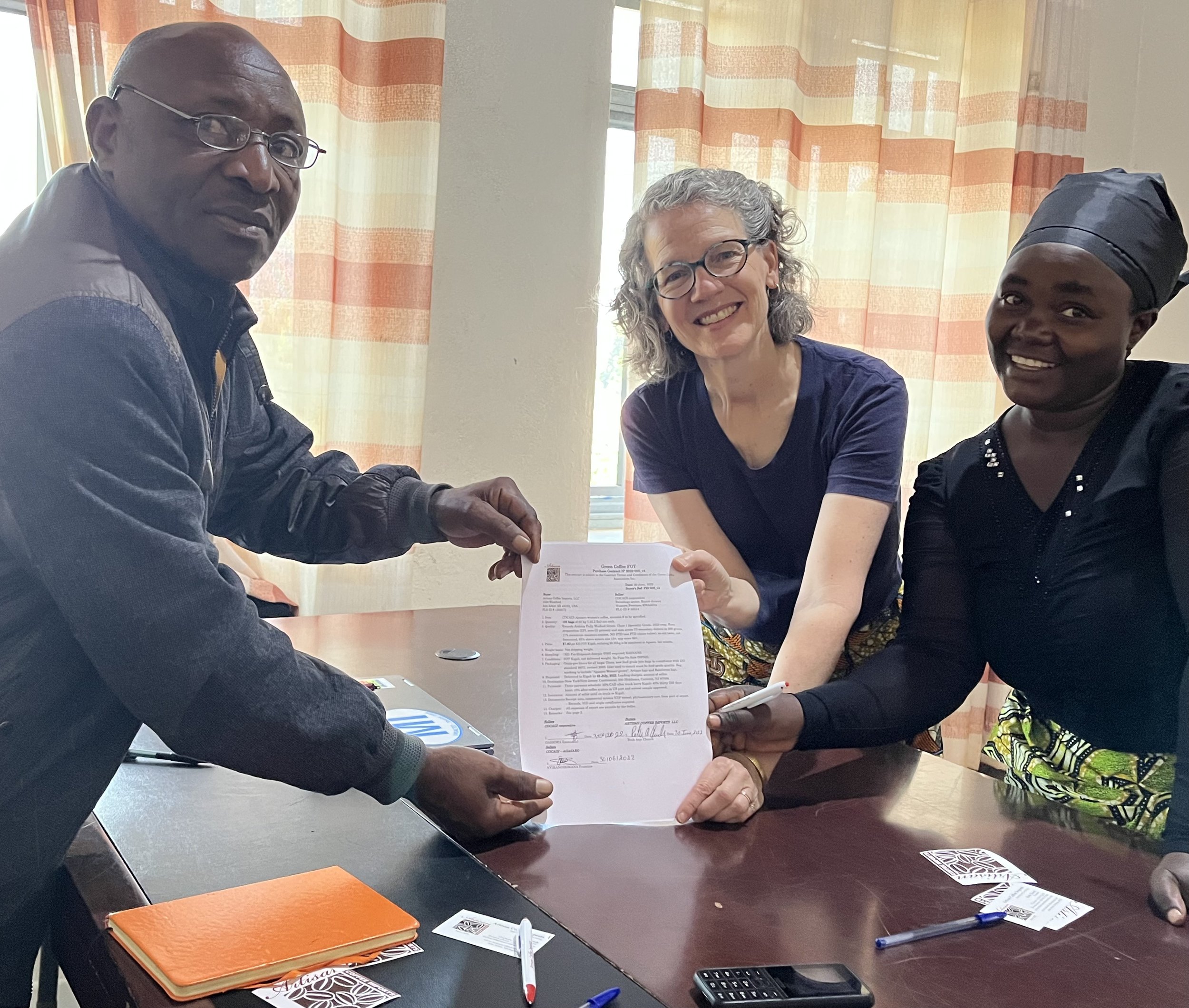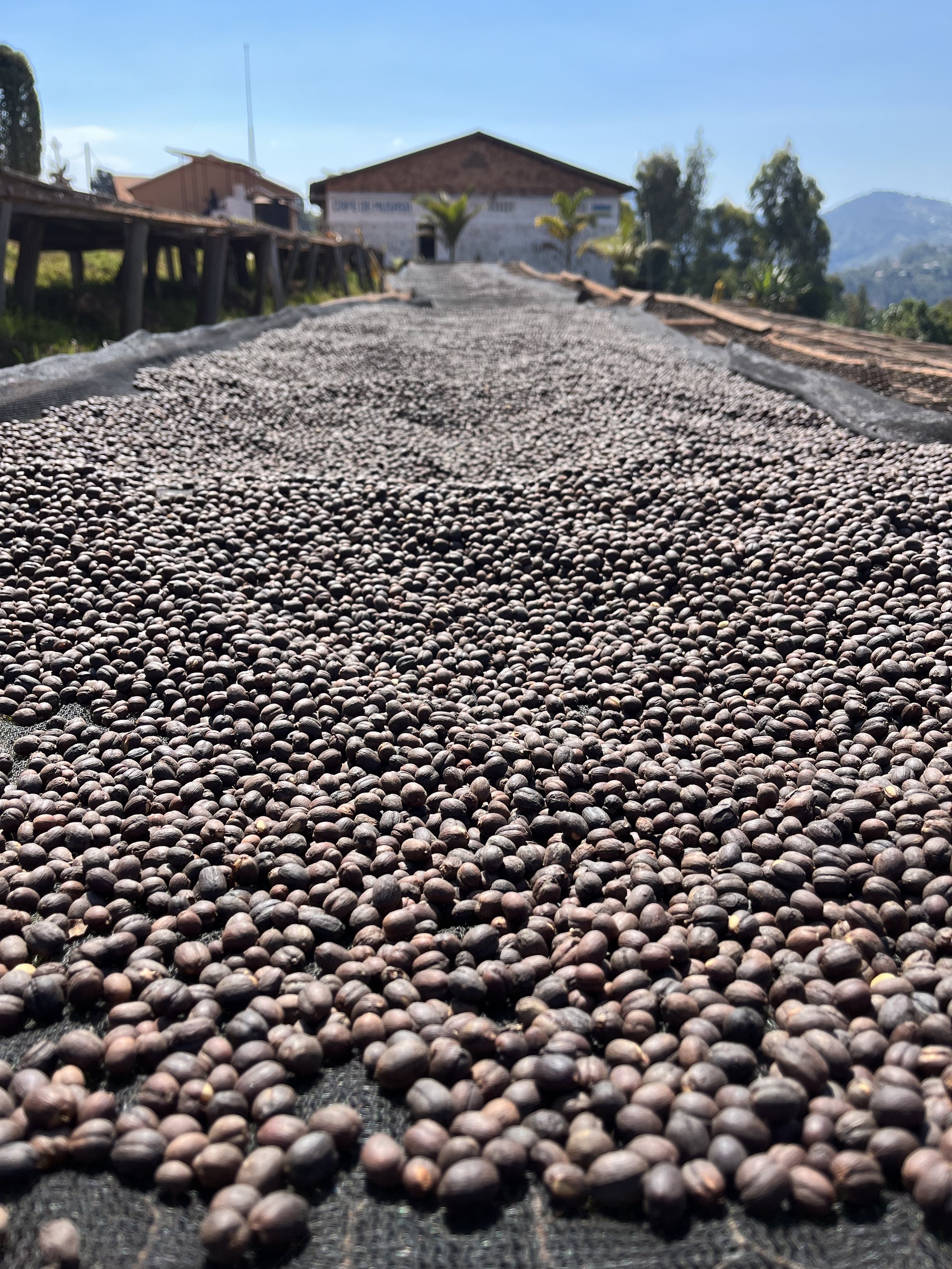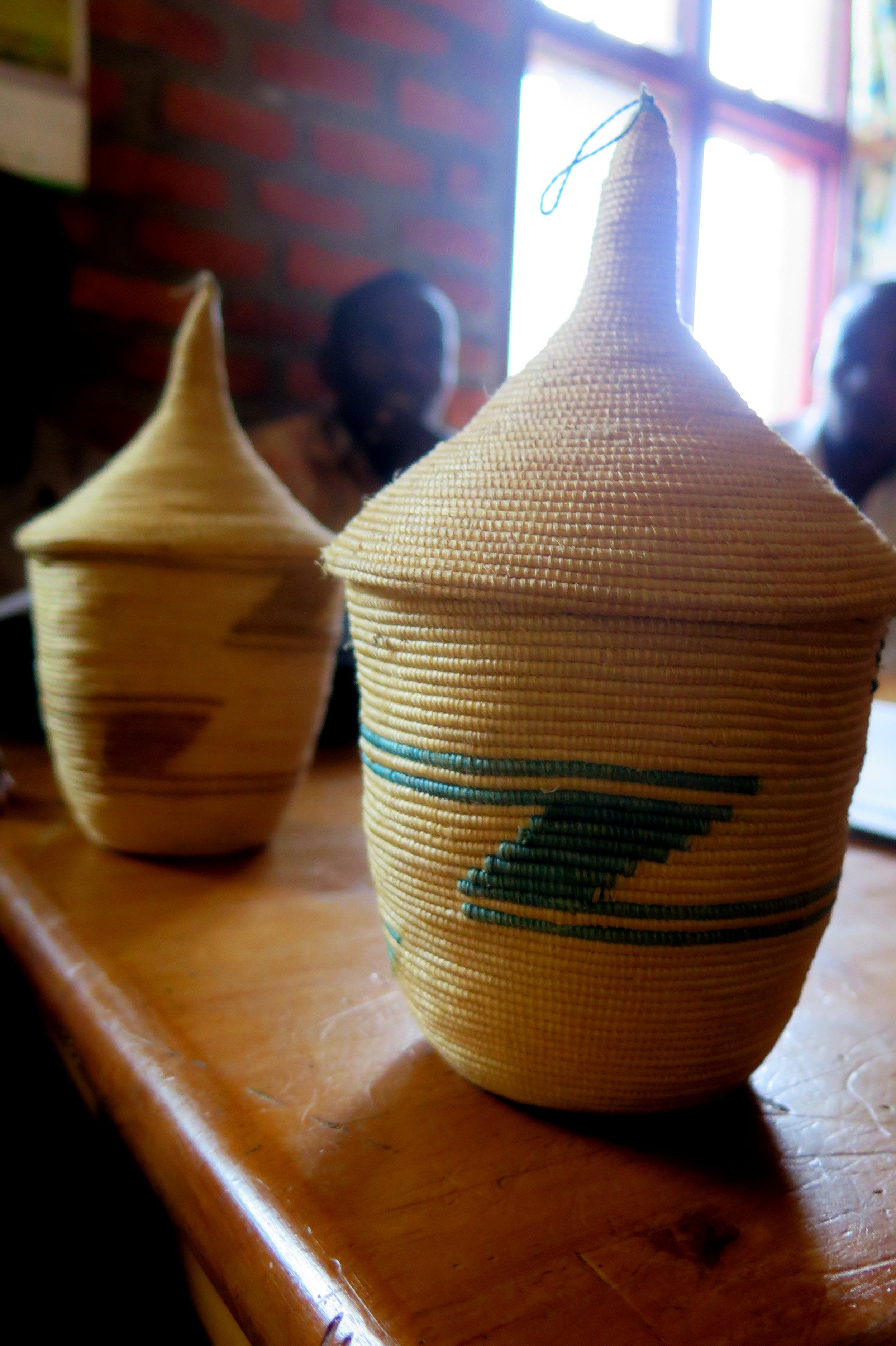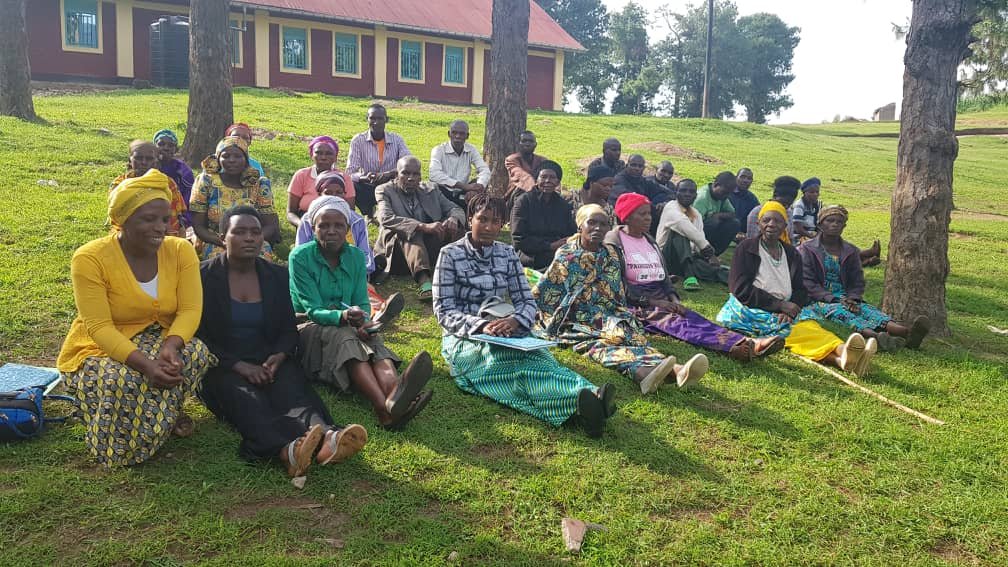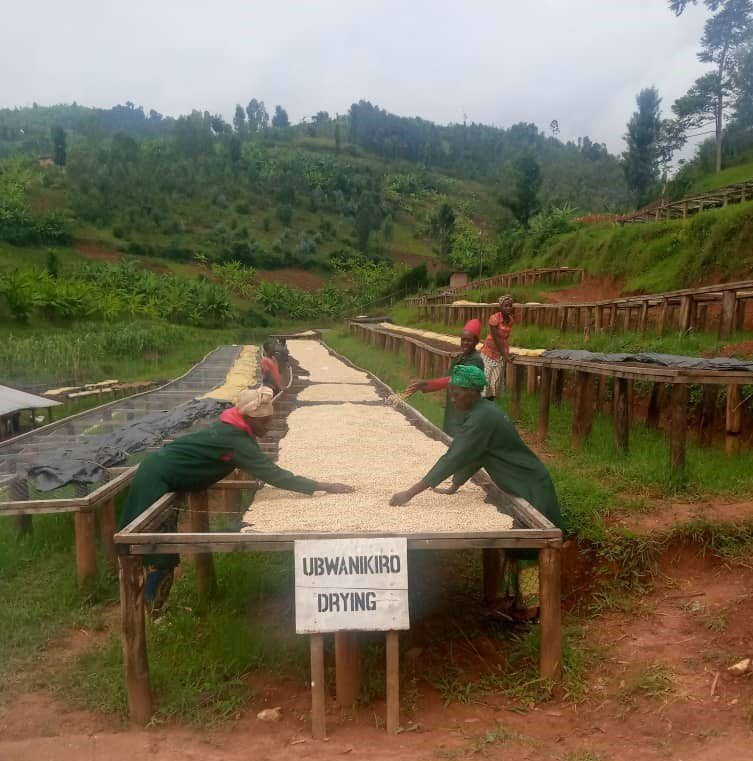Rwanda Specialty Green Coffee
Transparently traded, women-grown.
Agasaro
Process: Check back in 2026
Parent coop: COCAGI
Location: Western Province, Rusizi district, Rwimbogo sector
Elevation: 1600m
Kungahara
Processes: fully-washed, natural, carbonic maceration
Parent coop: Bwishaza
Location: Western Province, Rutsiro district, Gihango sector
Elevation: 1700-1900 m
Rambagirakawa
Processes: Fully-washed, Natural
Parent coop: Dukundekawa Musasa
Location: Northern Province, Gakenke district, Ruli cell
Elevation: 1800 - 2020m
Ejo Heza
Process: fully-washed
Parent coop: Kopakama
Location: Western Province, Rutsiro district, Mushubati sector
Elevation: 1800-2000 m
Agaseke
Process: fully-washed
Parent coop: Kopakaki Dugegure
Location: Western Province, Karonigi district, Rubengera sector
Elevation: 1600-1800 m
Special Processes
Processes offered: natural, carbonic maceration
Parent coops: Bwishaza, and Dukundekawa Musasa
Women’s Groups: Kunghara and Rambagirakawa
Locations: Western Province and Northern Province
Agasaro
(expected to return in 2026)
COCAGI, founded in 2004, is one of Rwanda’s oldest cooperatives and has received dozens of awards and certificates over the years. They were one of the early cooperatives established by the PEARL project, which launched Rwanda’s transformation into a specialty coffee producer by introducing regional washing stations. Today the cooperative boasts a well-maintained cherry reception area, two MacKinnon depulping machines, long grading channels, seven fermentation tanks, large shaded sorting areas, vast areas with rows of raised drying beds and a headquarters equipped with a cupping lab and computers for office operations. In 2018 they established their first women’s group, “Agasaro”, and today they have added a second one named “Susuruka”. In 2023 they began a new, large community plot for the women and in 2024 the young trees were looking well. We hope for their first production in 2025.
-
COCAGI (Coopérative des Caféicultureurs de Gishoma), 1114 members; 291 women
-
Agasaro means “precious bead” or “pearl”
-
Grade A1, +15 screen, specialty grade, Euro preparation, clean cup
-
Variety: Arabica, Bourbon
Grade: A1, screen 15+
-
Region: Western Province, Rusizi district
Elevation: 5,500 ft / 1,600 meters
-
Fully washed, dried on raised beds
-
Estimated to arrive in November to Continental, NJ and Oakland, CA
At a Glance








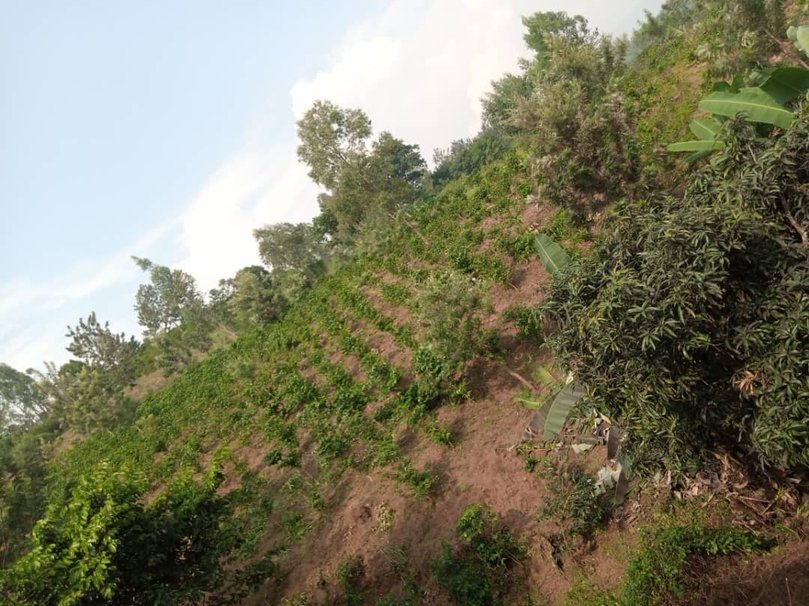

Story of Agasaro Women
In 2018, the COCAGI cooperative established their first women’s group.
Agasaro Map
Western Province, Rusizi District, Rwimbogo Sector
Agasaro Cupping Notes
Apricot, lemon, clove, black currant
How We Met Agasaro
Every relationship starts with a “how we met” story
Rambagirakawa
The Rambagirakawa women have worked together since 2018. Now they are 200+ members. They weave beautiful traditional Rwandan baskets during the off season to earn off-season income. They’ve also been the beneficiaries of an NGO named Days for Girls, which sends them materials and sewing machines. The Rambagirakawa coffee-farming women sew the fabric into feminine hygiene kits to be donated to girls throughout their rural, mountainous area. The women used the premium from Artisan Coffee Imports (paid for by you, the roaster!) to help them purchase new land with coffee trees. There will be even more delicious Rambagirakawa women’s coffee in years to come!
-
With special order: honey, anaerobic
-
Dukundekawa Musasa: 1400 members, 289 women
-
"Rambagirakawa" means 'professional women owning and growing coffee trees.'
-
Variety: Arabica-Bourbon
Grade: A1, screen 14 - 16
-
Region: North, Gakenke district; Musasa washing station
Elevation: 5,200-6,000 ft/ 1,600-1,800m
-
Upon request: Fair trade FLO, Rainforest, certified organic
-
Estimated to arrive in November to Continental, NJ and Oakland, CA
Rambagirakawa At a Glance

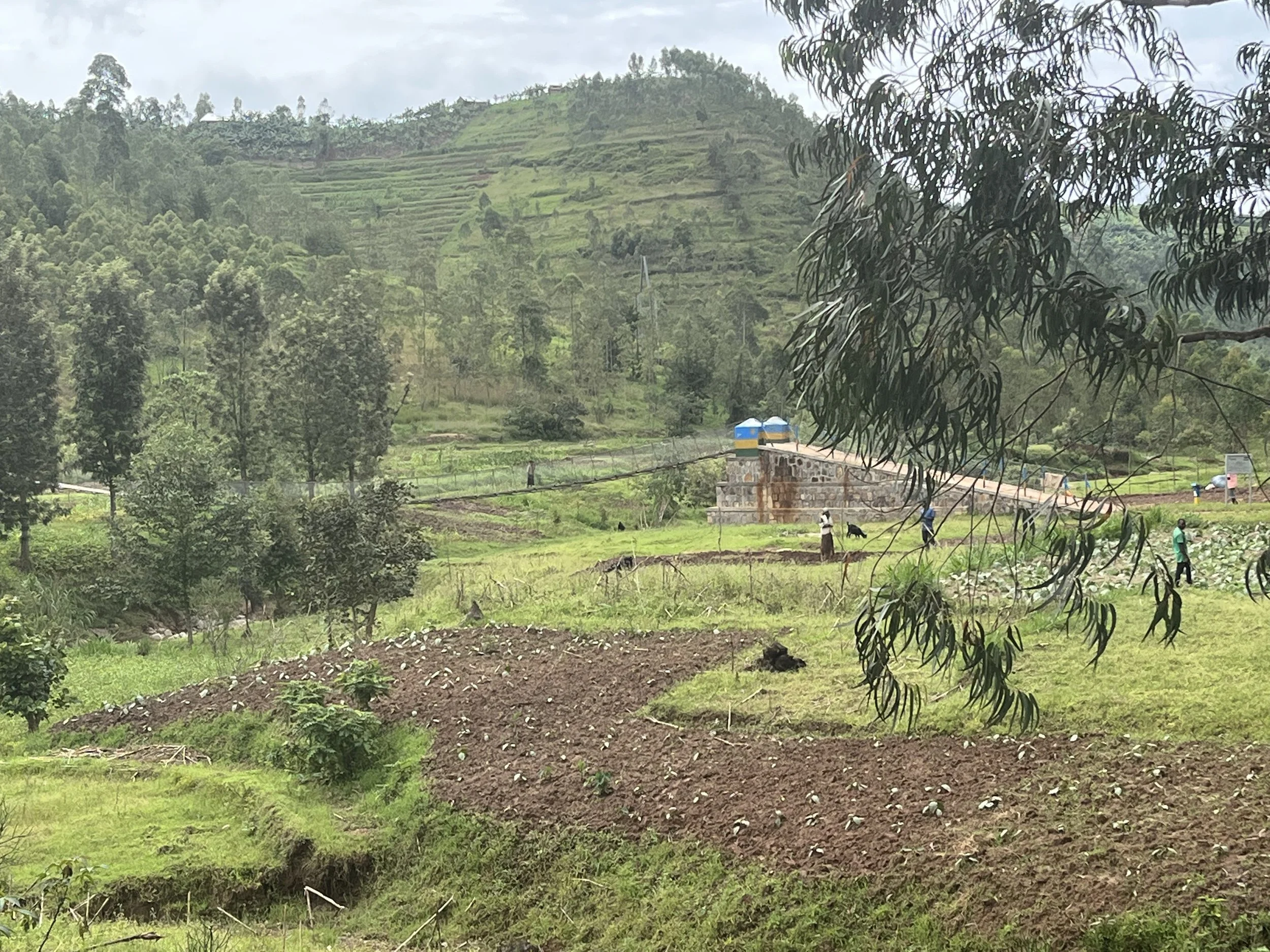

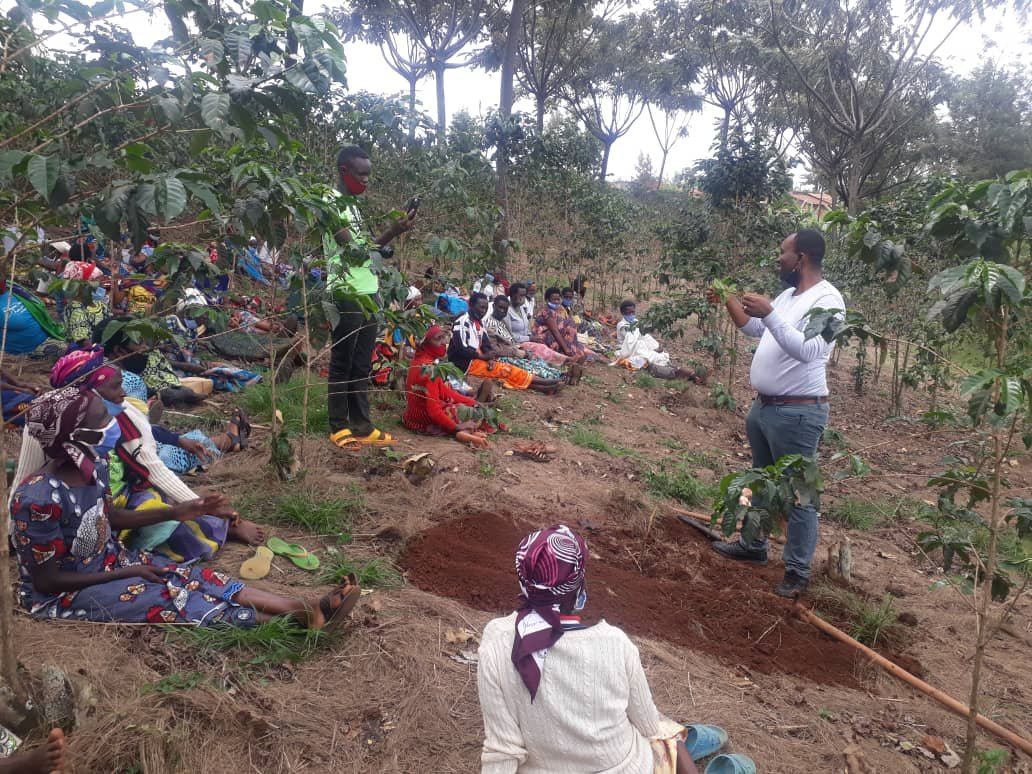
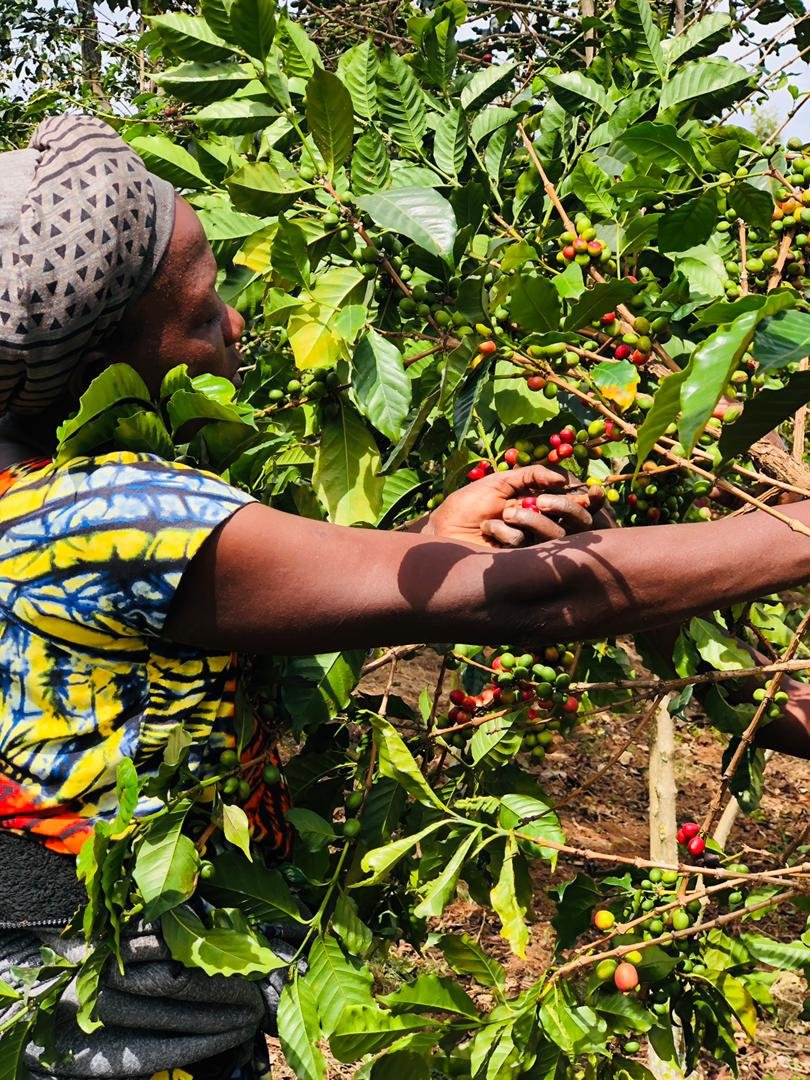


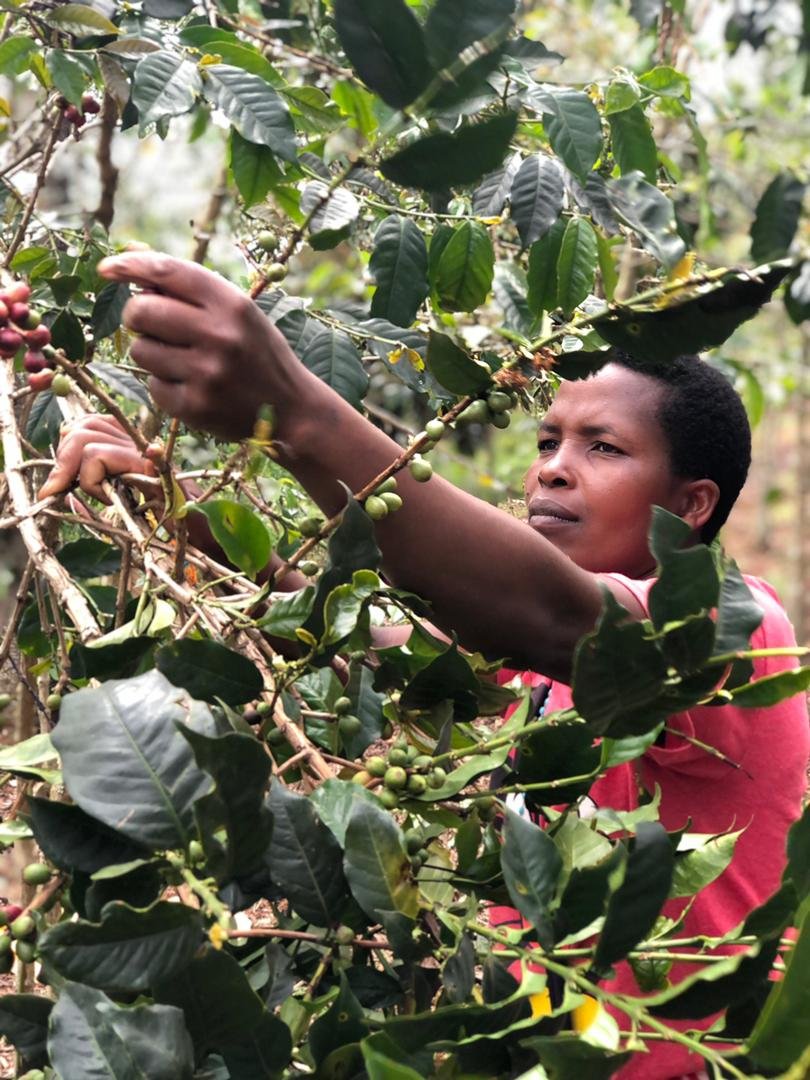
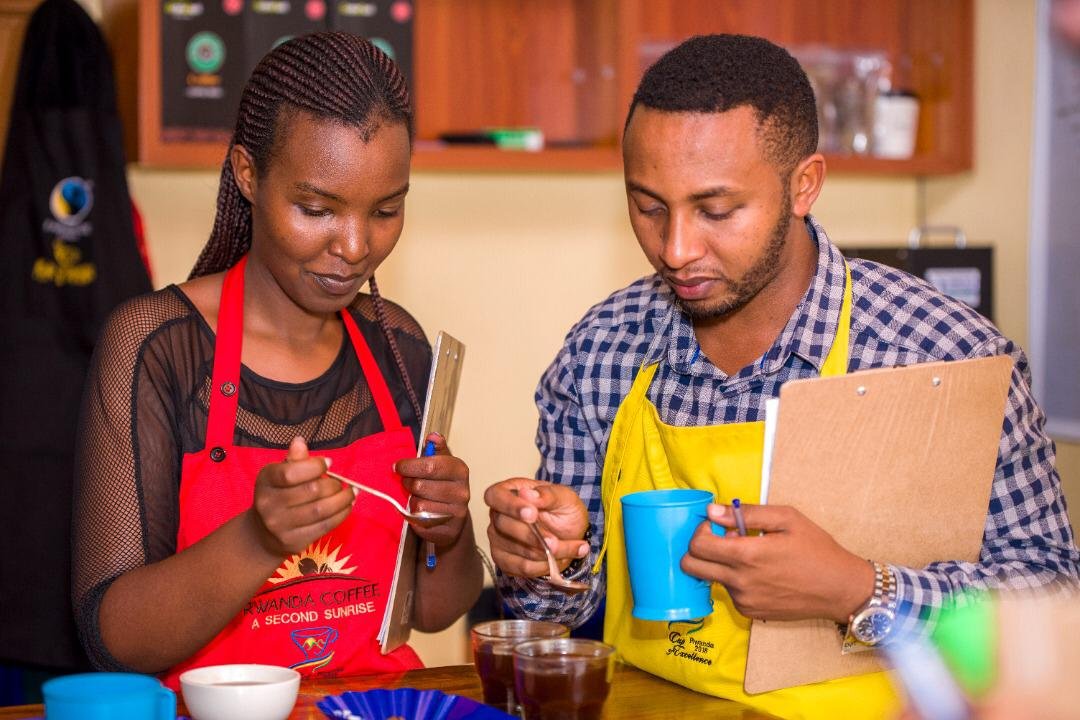

Rambagirakawa Gender Equity
The Rambagirakawa women work together in their coffee plot and on non-coffee projects. Non-coffee projects generate non-coffee income and benefit girls and vulnerable populations in their community. Read more…
Dukundekawa Cutting Edge Machines
The parent cooperative of these women has access to some of Rwanda's most cutting edge machinery for washing stations. Read more details…
Rambagirakawa fully-washed (FW) Cupping Notes
Apricot, cranberry, rose, cocoa
Rambagirakawa Natural Cupping Notes
Raspberry, melon, apple, honey
Agaseke
Agaseke is a traditional Rwandan pointed top basket. Rwandan women are famous for being excellent weavers of these baskets. Rwandans use these baskets to present gifts to each other. Ruth Ann met the leaders of Kopakaki cooperative in 2016. In 2020 she started importing the coffee of their women’s group, Agaseke, as the group’s first buyer. Suddenly they were “on the map” and getting organized with officers, trainings and a plan for how to spend Artisan’s premium. The cooperative has 990 members, 265 of whom are the women Agaseke. This will be our 5th year of importing Agaseke.
-
-
Kopakaki Dutegure. 990 members; 265 women.
-
"Agaseke" is the name of a classic Rwandan basket with a pointed top. It is used to present gifts.
-
Variety: Arabica-Bourbon
-
Region: West, Karongi district
Elevation: 5,200-6,000 ft/ 1,600-1,800m
-
Fair Trade FLO, Rainforest
-
Arrives in NOVEMBER to Continental, NJ and Oakland, CA.
Agaseke at a Glance

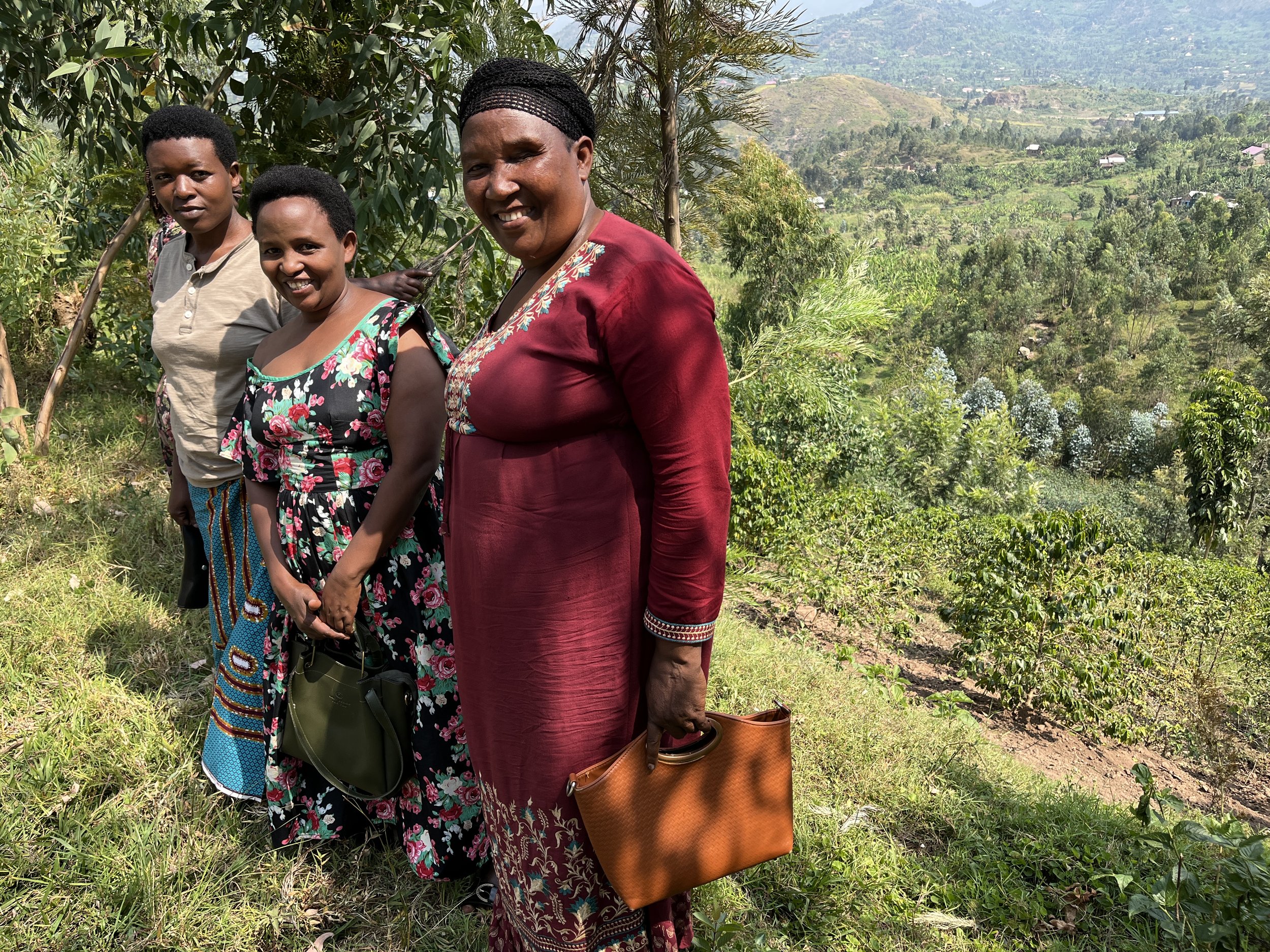






Story of Agaseke Womens Group
At the end of a tour of the washing station, visitors to the Kopakaki (parent) cooperative can buy a nicely packaged bag of ROASTED Agaseke beans.
Agaseke Origin Notes
From Rwanda's Western Province, Karongi district, the washing station is just off a main road.
Agaseke Cupping Notes
Brown sugar, cinnamon, ginger, cherry
Agaseke Map
Located in Karongi district, Western Province, close to Lake Kivu
Kungahara
Kungahara means “be rich” in Kinyarwanda. Angelique TUYISENGE, president of the women’s group; the landscape surrounding Bwishaza cooperative’s drying tables and pulping pavilion. Artisan first met Bwishaza’s leaders in 2016. We are now in our fourth year of partnering with this small cooperative (596 members) and their women’s group, Kungahara, of 206 women. The women have been using the premiums Artisan pays to pay down their loan they took out to buy a plot of land which they planted with coffee and they farm together.
-
Fully-washed, Gr. A1 and A2
With special order: anaerobic
-
Bwishaza cooperative: 596 members, 206 women.
-
"Kungahara" means "be rich" in Kinyarwanda. Ms. TUYISENGE is president of the young group of 206 women.
-
Variety: Arabica-Bourbon
Grade: A1, screen 13 - 16
-
Region: West, Rutsiro district
Elevation: 1,650-1,800 masl
-
Fair Trade FLO
-
Arrives in November to Continental, NJ and Oakland, CA.
At a Glance



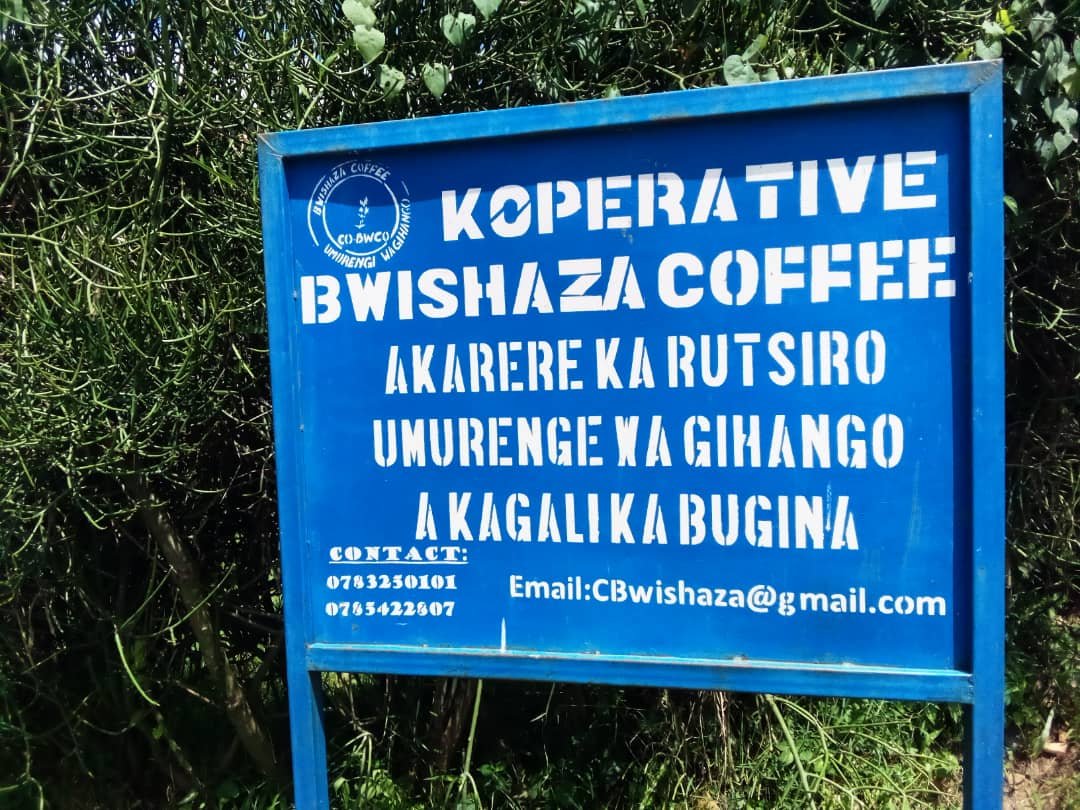

Story of the Kungahara Women
In 2017 a Korean non-profit organization, Beautiful Coffee, helped this cooperative form a women's group.
Kungahara Natural, Cupping Notes
Apricot, blueberry, melon, licorice
Kungahara Origin Notes
In the wake of the genocide, women made up about 65 percent of the surviving population. They had little choice but to fill the roles once occupied by men.
Kungahara - Fully Washed, Cupping Notes
Grape jelly, rooibos, black currant, honey
Bwishaza-Kungahara Map
Western Province, Rutsiro District, Gihango sector
Kungahara, Carbonic Maceration, Cupping Notes
Apricot schnapps, rhubarb, melon, lemon & lime
Ejo Heza
Since 2016, Artisan Coffee Imports has been importing and promoting the incredible Ejo Heza women and their coffee. Ruth Ann first arrived at Kopakama cooperative in May 2016 as a consultant giving trainings. (She was living in Rwanda at the time, working on a coffee research project.) Ejo Heza leaders were in the training and, during one of the breaks, guided Ruth Ann to visit their community coffee plot. There, Ruth Ann saw how they were doing controlled experiments! Half the plot was cultivated using traditional techniques, the other half is where the women were testing new weeding and mulching techniques that might save them labor (which = costs). Seeing this innovation was what “sold” Ruth Ann on trying the coffee. The incredible taste and 86+ score did the rest!
-
-
Kopakama Cooperative: 1024 members, 473 women.
-
"Ejo Heza" means bright tomorrow.
-
Upon request: Fair Trade FLO, Rainforest, Organic certified
-
Variety: Arabica-Bourbon
Grade: A1, screen 15+
-
Region: Western Province, Rutsiro district, Mushubati sector
Elevation: 6,000 ft/1,600-1,800m
-
Estimated to arrive in November to Continental, NJ and Oakland, CA
At a Glance










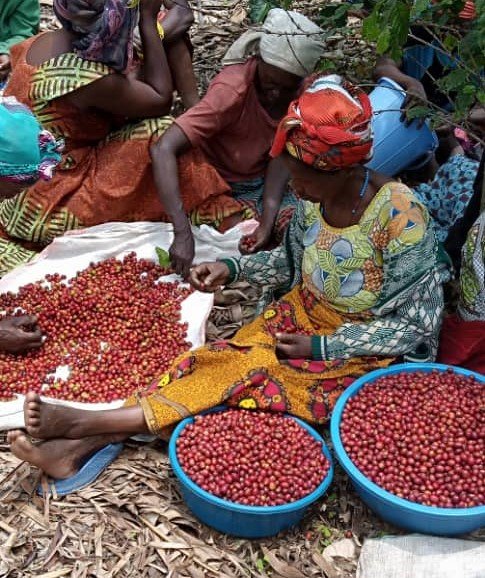

Ejo Heza Gender Equity
The Ejo Heza women lead their sub-cooperative, farm a community plot of trees, and now one of them has been elected president of the larger Kopakama board.
Ejo Heza Origin Notes
Rwanda's Western Province, Rutsiro District, overlooking Lake Kivu, Mushubati cell.
Ejo Heza - Fully Washed Cupping Notes
Apricot, lime, maple syrup, apple pie
Ejo Heza Lean at Origin
Leaders of Ejo Heza were trained by Artisan in Lean at Origin principles, along with the men.
Special Processes
Special processes bring new opportunities for both producers and roasters to thrive! Roasters can distinguish their brand as truly special and producers can display their skill in managing complex processes. Listed above, you'll find details on KUNGAHARA natural and carbonic and RAMBAGIRAKAWA natural.







